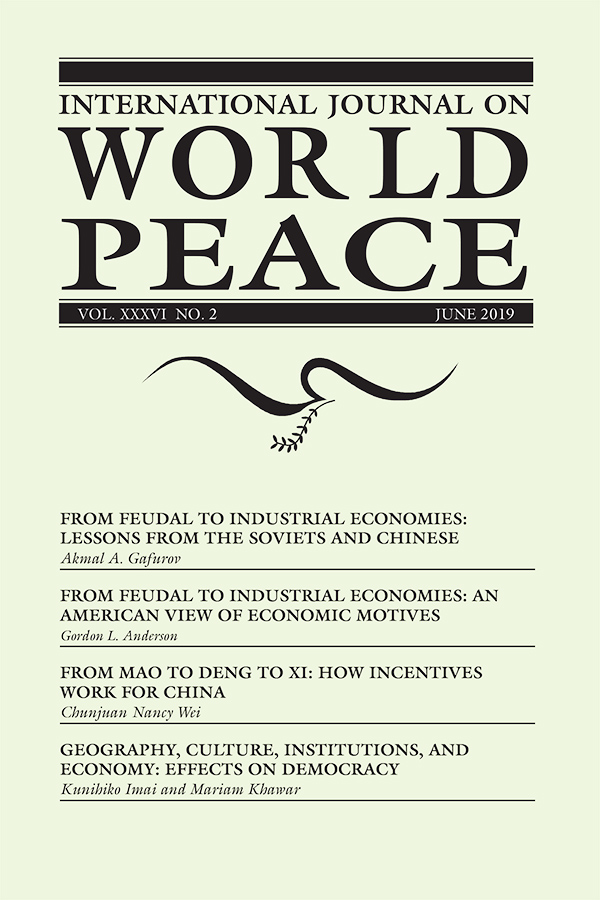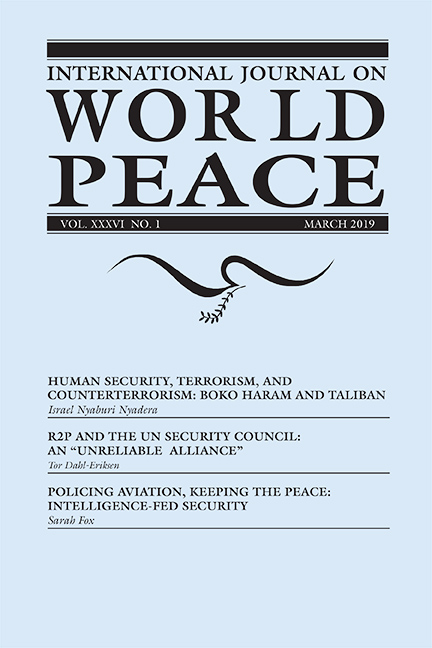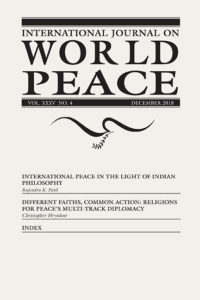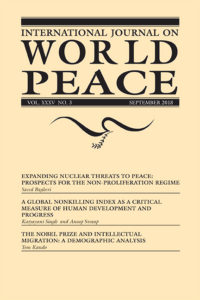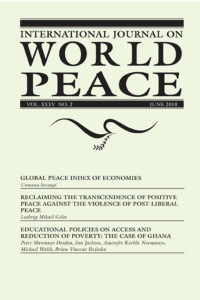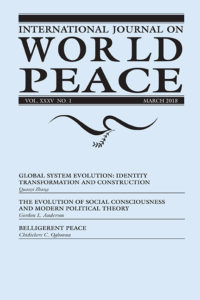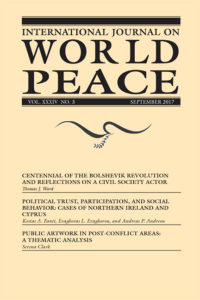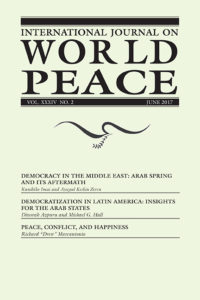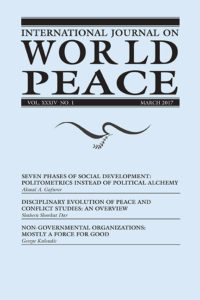Table of Contents
Purchase Online
Introduction to IJWP, December 2017
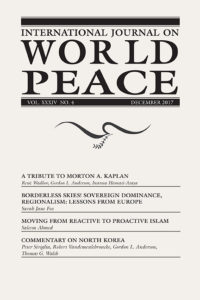 This year marks the 60th Anniversary of the Rome Treaties that created the European Economic Community (EEC). Since the origins of the nation-state system with the Peace of Westphalia in 1648, it has been a long arduous path towards a stable and peaceful international system. The process, which began in Europe as a treaty among warring kingdoms, led to an international state system represented by the United Nations. But the idea of the nation-state is foreign to traditional societies and empires, and perhaps not appropriate for modern pluralistic societies.
This year marks the 60th Anniversary of the Rome Treaties that created the European Economic Community (EEC). Since the origins of the nation-state system with the Peace of Westphalia in 1648, it has been a long arduous path towards a stable and peaceful international system. The process, which began in Europe as a treaty among warring kingdoms, led to an international state system represented by the United Nations. But the idea of the nation-state is foreign to traditional societies and empires, and perhaps not appropriate for modern pluralistic societies.
The Idea of a Nation-State
The original concept of the nation-state involves the idea of a king deciding the national religion or value system that applied to all residents on his territory. The idea of a religious system coterminous with a territory is not new. Egypt, Babylon, Israel, and Rome all had national gods that guided and protected their societies and who were worshiped in temples. Then in 380 ad, Emperor Theodosius I of Rome made Nicene Christianity the official state church of the Roman Empire. The relationship of church and state was often contentious, with popes and kings vying for supremacy. The Reformation, spearheaded by Martin Luther and John Calvin, led many kings and princes to adopt new denominations of Christianity they considered better. And, in 1534 ad, Henry VIII in England created a national church for England. When the Peace of Westphalia was signed, every state had an official religion. The King provided security and the religion provided the cultural value system.
Then, following the American and French Revolutions, to be an American or French national, regardless of race, religion, or origin, required allegiance to a secular state agreeing to speak the national language and live peacefully with others on the territory. This secular understanding of of “nation,” which theoretically allows for pluralism, has been difficult to implement because these states enacted social policies through secular political processes that conflict with the value systems of groups living on the territory that agreed to the rules of citizenship. Continue reading →
